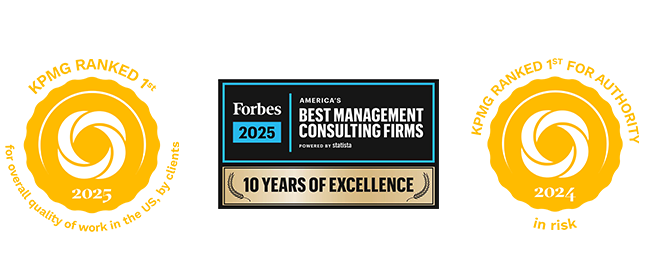Modern Finance Operating Models: Why CFOs Can’t Wait to Redesign How Work Gets Done
Why the traditional finance operating model no longer works

The Strain on Today’s Finance Function
Finance isn’t broken. But the way it operates is under strain.
The traditional finance model—built for control, consistency, and compliance—was never designed for today’s volatile environment. Markets shift overnight, AI adoption is accelerating, and stakeholders expect finance to guide real-time decisions, not just report after the fact.
Consider how quickly market sentiment can change. When leadership asks for an updated forecast or scenario analysis and finance can’t deliver until the next reporting cycle, credibility suffers. The delay isn’t just an inconvenience—it can alter how the business perceives finance’s ability to lead in a volatile environment.
The reality is this: finance leaders aren’t failing. Their operating models are simply out of sync with today’s pace. Unless they evolve, finance risks being seen as slower to respond, while the rest of the business accelerates—and competitors seize opportunities first.
The choice for CFOs is clear: continue under outdated finance models, or reimagine finance as a modern, tech-enabled, strategic function.
Why Reimagining Your Finance Operating Model Can’t Wait
Discover how leading CFOs are moving beyond incremental fixes to rebuild finance around speed, insight, and AI-enabled decision support.
The Top Challenges Slowing Finance Modernization
CFOs already face relentless pressure: sharper insights, faster forecasts, tighter controls. What’s different today is that legacy structures make it harder to keep up with rising expectations.
Five interconnected challenges stand out:
- Redesign while operating: Balancing “need it now” demands with the growing need to rework finance’s foundations.
- Data overload, little value: Too much time reconciling inconsistent data instead of generating insights.
- Technology sprawl: A patchwork of disconnected systems multiply complexity instead of reducing it.
- Slow adoption of AI: While other functions embed AI at scale, finance often lingers in pilots.
- Cultural fatigue: Manual cycles drain time and energy, leaving less room for high-value work.
These challenges aren’t small inefficiencies, they’re interconnected challenges that reinforce one another—data gaps fuel tech sprawl, and cultural fatigue makes it harder to change course. Left unchecked, these dynamics create friction that keeps finance from meeting the business at its pace.
How Legacy Finance Models Hold Teams Back
The operating model itself, not just the tools, has become finance’s biggest limiting factor:
Old Model:
- Built for quarterly stability. Designed for control and predictability, but too rigid for today’s volatility.
- Scattered, inconsistent data. Teams spend more time reconciling than analyzing, eroding trust in the numbers.
- Technology stacked onto broken processes. Each new tool adds complexity instead of clarity.
- Talent tied up in manual work. Skilled professionals chase transactions instead of shaping strategy.
Without rethinking the model itself, every improvement risks becoming a workaround—temporary relief that doesn’t address the underlying strain. Real progress comes when finance shifts from patching problems to building a system designed for speed, clarity, and scale.
A Future-Ready Finance Operating Model
The path forward is a modernized finance operating model, one that connects people, processes, data, and technology into a unified system designed for speed, insight, and impact.
This isn’t about incremental upgrades. It’s about reshaping how finance gets work done – changing the daily experience for teams and the outcomes for leadership.
Early adopters are already seeing the payoff: faster close cycles, forecasts that shape boardroom decisions, and data that leaders can act on with confidence. These gains aren’t the result of one tool or initiative, but of rethinking how finance operates end to end.
The details differ by organization, but the common thread is clear: the functions that modernize now are creating a durable advantage. And the organizations that delay risk widening the gap between what the business expects and what finance can deliver.
Why CFOs Should Act Now
Waiting for steadier conditions or “perfect data” is no longer practical.
- AI adoption is accelerating: What once took years now takes months.
- Markets demand speed: Timely reporting strengthens investor confidence.
- Talent expectations are shifting: Skilled professionals want to contribute in modern, digital-first environments.
The cost of delay isn’t just inefficiency, it’s missed opportunity for finance to strengthen its role as a strategic advisor.
Imagine two companies facing a sudden downturn. One updates its forecast in days, reallocates resources, and reassures investors. The other takes weeks, leaving leadership to make decisions on outdated assumptions. The difference isn’t just efficiency—it's survival.
Finance’s Opportunity to Lead
Business conditions won’t wait for finance to catch up. But the moment is also an opportunity.
CFOs who take the lead—redesigning their operating models, embedding AI where it drives the most impact, and freeing teams for insight work—can reposition finance as a strategic driver of enterprise value. Instead of being perceived as reactive, finance becomes the function that helps the organization anticipate change, allocate resources quickly, and seize growth opportunities ahead of competitors.
Moments of disruption create openings for bold leadership. For CFOs, that means moving beyond firefighting and laying the groundwork for a model that can flex, scale, and guide the business forward. The opportunity is not just to make finance more efficient, but to redefine its role as a driver of enterprise confidence and agility.
The organizations that act now won’t just adapt to change—they’ll set the pace for it.
Why Reimagining Your Finance Operating Model Can’t Wait
Discover how leading CFOs are moving beyond incremental fixes to rebuild finance around speed, insight, and AI-enabled decision support.
Insights to Help You Elevate Your Finance Operations
What sets apart good from great finance leaders? It's their ability to harness innovative technology to drive efficiency and foster growth.
Popular category topics
Explore more

CFO Real Insights
Data, analysis and events to keep CFOs informed and focused.

CFO webcast series
From business partnering and growth to transformation and regulatory challenges, this series addresses top CFO challenges and concerns..

Go beyond cost cutting, improve cost efficiency
CFOs and finance leaders: Do more than cut costs. Lead change across your organization with a holistic and sustainable approach to cost efficiency.
Meet our team
Our KPMG Finance teams provide clients with rapid access to hard-to-find skills and technology excellence, enabling their company to accelerate innovation and operate with more agility. Our professionals bring significant functional, industry, and technology experience to every engagement, including the latest AI, cloud, and enterprise data capabilities. Work with us to transform your stubborn operational challenges into leading-edge finance solutions.







